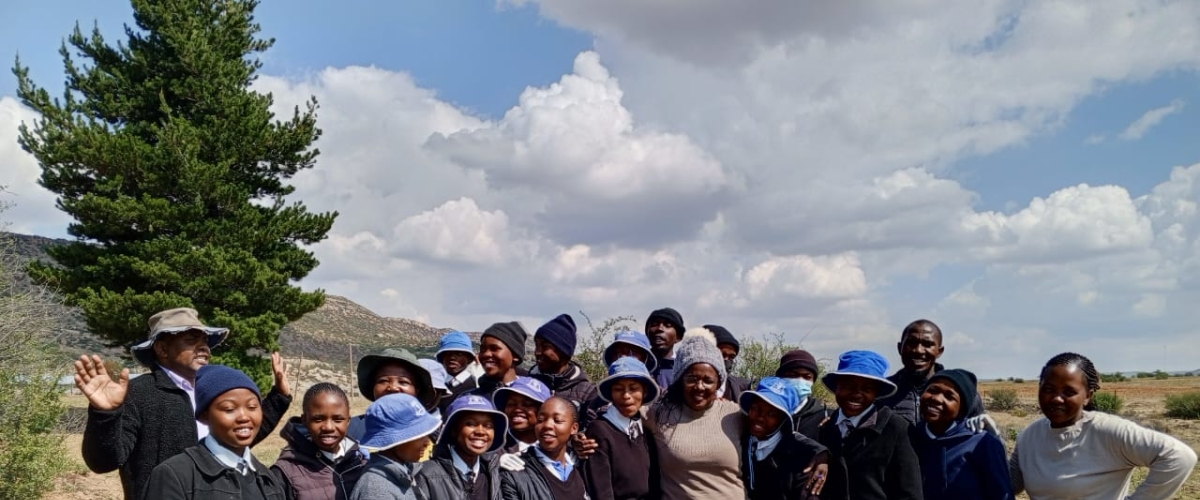
The sub-project titled “Collection, characterization and conservation of Cassava, Peach trees and Indigenous Leafy Vegetables germplasm in Angola and Lesotho” led by the Plant Genetic Resources Section (National Genebank) of the Department of Agricultural Research (DAR), under the World Bank funded Agricultural Productivity Programme for Southern Africa (APPSA) in collaboration with the Horticulture Section, National University of Lesotho (NUL) and Department of Forestry, has established a Field Genebank at Siloe High School in Mohale’s Hoek District in the Southern Part of Lesotho. The purpose of this establishment is to conserve genetic diversity which exists among locally adapted peach trees, thereby enhancing their utilization. This field genebank, housed in the school environment will benefit the school in various ways which include, but are not limited to: improved technical skills in orchard establishment and management, diversified healthy diets and improved nutrition through consumption of peach fruits, income generation through sale of peach fruits, enhanced research capacity through student projects as well as enhanced skills in fruit processing and preservation techniques which will be provided by the area extension staff. The benefits of trees are not just for food security and nutrition but also for the environment where they act as windbreaks and shade while contributing to and improving local biodiversity.
One of the objectives of this sub-project is to determine the genetic diversity which exits among the peach cultivars found in Lesotho. As such, the trip to Siloe High School was undertaken to collect fresh young leaves from these peach trees which will be used to extract DNA. The leaves are being processed at NUL Laboratory with the help of Masters students and will later be shipped to ILRI in Kenya for genotyping and sequencing processes, where afterwards, the results will determine the cultivar names and population structure of the trees conserved in the school’s field genebank and also around the country as the peach samples were collected country-wide for this study.
The Agricultural Teacher at this school, Mr. Ntainyane Marabe conveyed his appreciation to the Department of Agricultural Research through APPSA Project, especially to the CO-PI of this sub-project for this thoughtful gesture which will not only benefit the school in the long run, but has also given his students an opportunity to learn something new which might broaden their career choices in the future. Also present at this collection exercise was a Masters student from NUL Faculty of Agriculture who is attached to this project as a research assistant. Ms. Keneuoe Nketsi mentioned that being involved in this sub-project exposed her to genebank concept and the process of DNA extraction and molecular characterization.

Source: Department of Agricultural Research (DAR) of Lesotho






